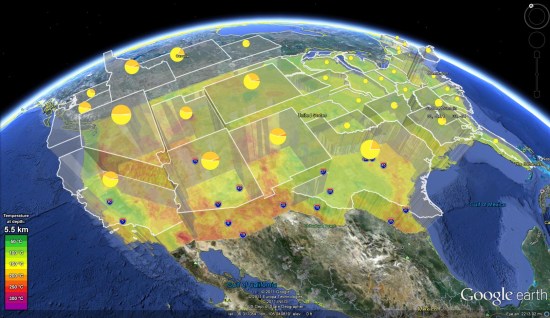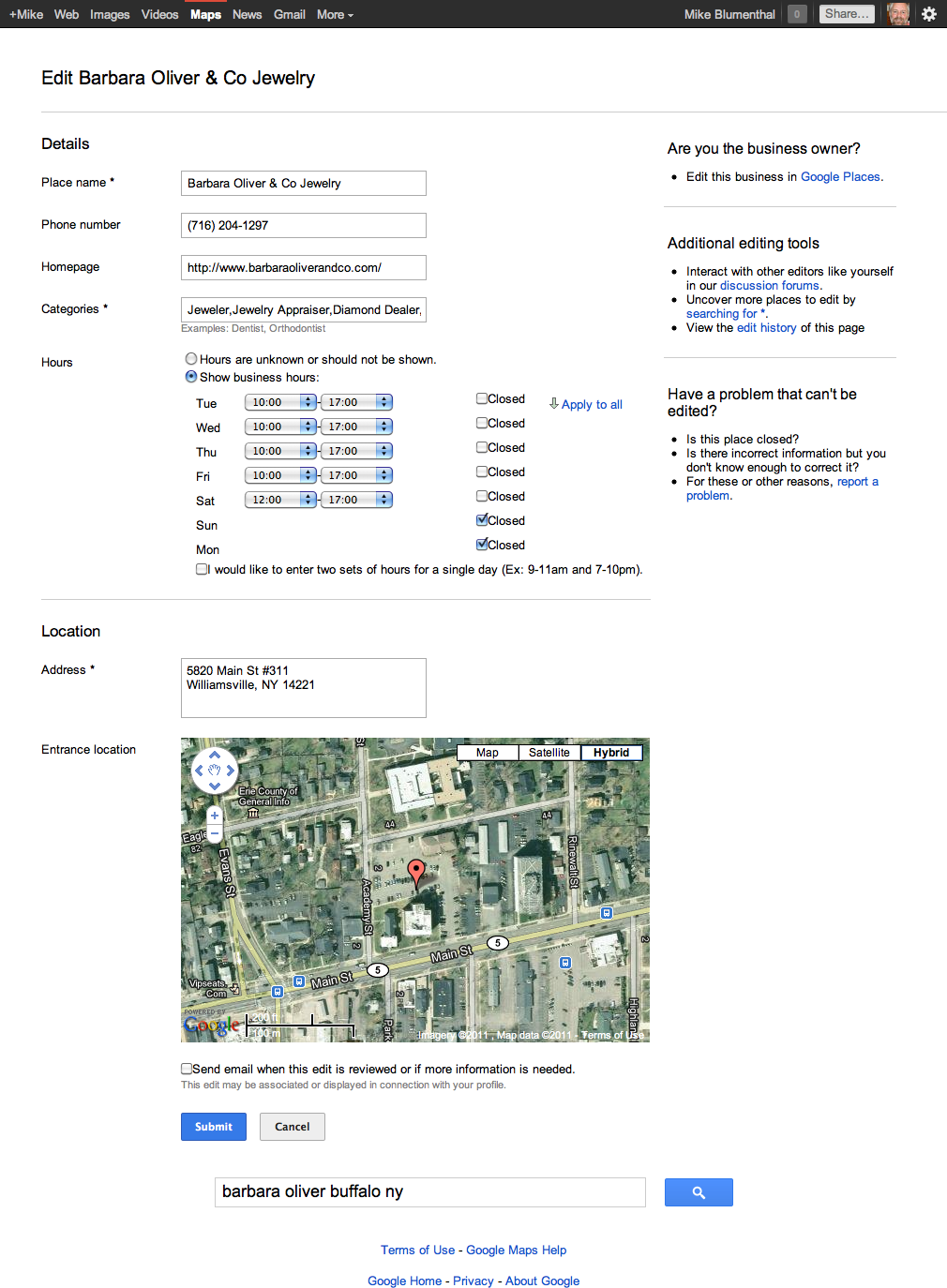Google Maps (formerly Google Local) is a web mapping service application and technology provided by Google, free (for non-commercial use), that powers many map-based services, including the Google Maps website, Google Ride Finder, Google Transit, and maps embedded on third-party websites via the Google Maps API.
The Geothermal Systems in Google Earth
Google.org was using Google Earth to visualize Geothermal Data in the United States.
Google has continued to increase the amount of data behind the map, making it a more and more powerful tool as times goes on.

If you’re unclear on what Enhanced Geothermal Systems (EGS) are about, read this snipped from the Google.org EGS page:
Enhanced Geothermal Systems, or EGS, attempts to do just that. EGS produces heat and electricity by harnessing the energy from hot rock deep below the earth’s surface, expanding the potential of traditional geothermal energy by orders of magnitude. EGS is a big challenge, but with the potential to power the world many times over, it demands our immediate attention. At Google we support efforts to advance EGS through R&D, investment, policy and information.
To see this data for yourself in Google Earth, simply load this KMZ file![]() (which was last updated just a few days ago). Also worth your time is this short article in Forbes that talks a bit more about how EGS could benefit all of us.
(which was last updated just a few days ago). Also worth your time is this short article in Forbes that talks a bit more about how EGS could benefit all of us.
Google Places: Community Edits
Andy Kuiper just pointed out to me, that in addition to the random UGC discussed this morning, that full on community edits of a claimed listing have returned to Places. The new (back to the future sort of new) community editing system allows logged in users to edit any listing via Places whether it is claimed or not by simply clicking on the Edit this place link on a Places Page.
Apparently the edits are referred to MapMaker editors for approval. It is not clear if all edits can be approved by a senior volunteer editor or if they will still require approval by Google staffers. MapMaker, introduced to the US in April of this year, was introduced into Canada the day before yesterday. Volunteer MapMaker editors achieve trust in the system by doing edits themselves and by doing accurate approvals of other’s edits. What they might or might not know about conditions on the ground is not considered important so editor quality varies.
The return of full blown community edits is an open invitation to abuse. The editors in the MapMaker environment are mostly honest, hard working souls but like those in all Google forums, have more on their plate than can be handled responsibly and it certainly opens up new pathways for corruption. It is not at all clear that adequate safeguards are in Place.
Let the fun begin.
